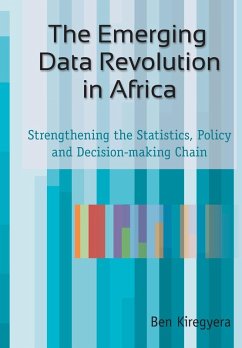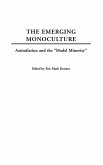The book presents a nuanced narrative about statistical development in Africa since around the time of independence when emerging states needed statistics mainly to support their planning processes. It highlights challenges faced then, some of which have persisted, including institutional, organizational and technical challenges. These challenges manifest themselves in countries with different degrees of severity and are quite severe in postconflict countries. Key statistical programmes to support statistical development in Africa in the 1970s, 1980s and 1990s are presented. It is shown that embracing management for results agenda by African countries created unprecedented demand for statistics that overstretched young and fragile National Statistical Systems but also engendered opportunities to address the above challenges. The results agenda also raised the prole of statistics in countries and at continental organizations, and led to increased investment in statistics in addition to positioning statistical systems to play a greater role in policy, planning and decision-making processes at different levels. Statistical systems have also been positioned to play a greater role in regional and continental integration processes and development by providing harmonized statistics. The book presents various frameworks, strategies, structures and initiatives (some home grown) that have been put in place by the African statistical community especially in the last ten years to meet the above challenges and lay a rmer foundation for statistical developments in the countries and continent. The role of civil registration systems in fostering statistical development is also addressed. So too are the various roles of change agents in statistical development - governments, statistics champions, leaders, statistical associations, "ubuntu" value system, inter-governmental processes, regional and continental organizations and development partners. In short, the book presents the African statistical agenda and trajectory that is heralding into the continent a "data revolution" that is slated to change the African statistical landscape and calculus thereby leading to better development outcomes in Africa - a better Africa. The book calls on the African statistical community to embrace change, to be more proactive in addressing user needs including new development policy areas such as gender, energy, environment and governance, and to be more creative, innovative and professional in confronting remaining data challenges. It presents pathways for consolidating achievements made so far and for stemming possible reversals. Finally, the book debunks myths about African development data spread in recent years by Afro-statistical pessimists.
Hinweis: Dieser Artikel kann nur an eine deutsche Lieferadresse ausgeliefert werden.
Hinweis: Dieser Artikel kann nur an eine deutsche Lieferadresse ausgeliefert werden.








